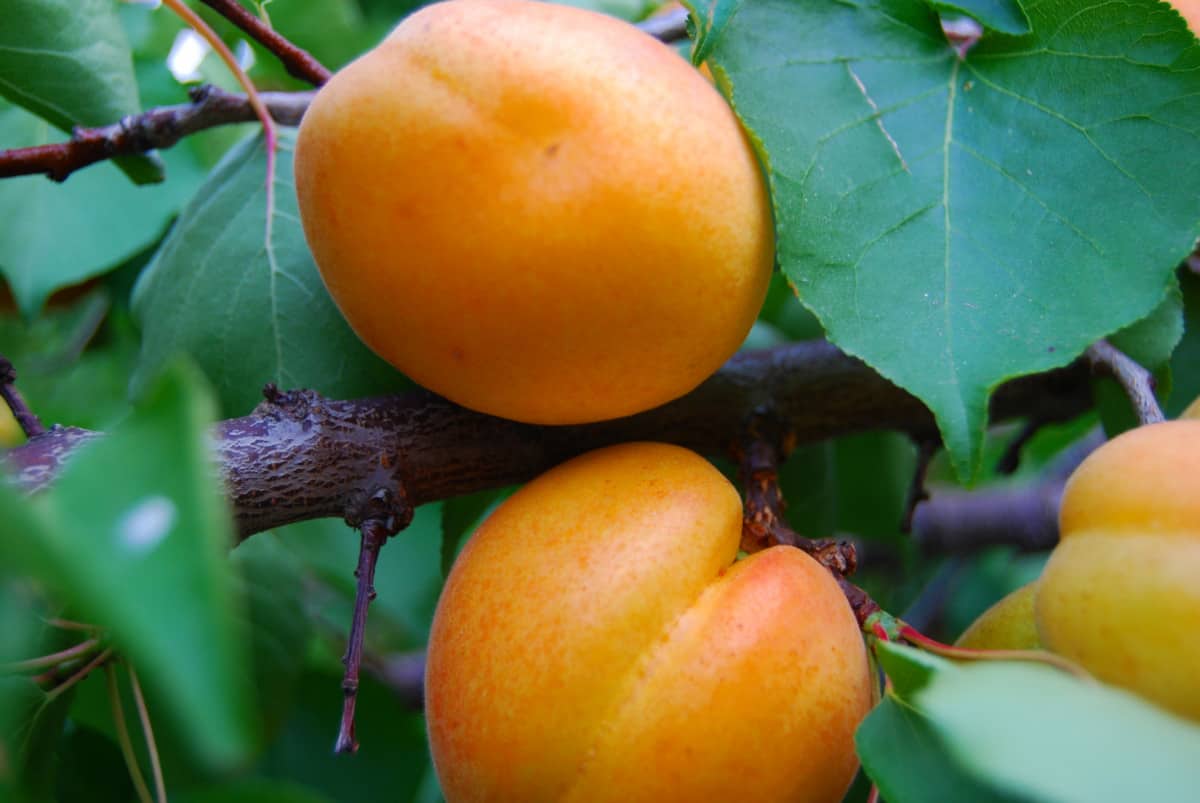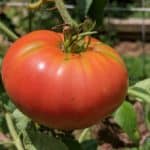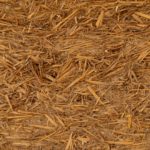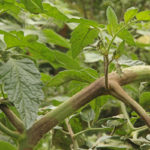
There have been many questions regarding this subject because apricots are considered to be a high-carbohydrate fruit. We will also look into whether it is healthy for chickens to consume and if it supplies them with the right nutrients.
If you have a half-eaten apricot and are wondering if your chicken can eat it the answer is yes then can. Apricots contain sugar, so they should only be fed to your chicken as an occasional tasty treat.
Can chickens eat apricots? Yes, chickens but can eat only the flesh of apricots. The leaves, stem, and pits of apricots contain cyanogenic glycosides which are toxic and should not be fed to chickens. Apricots (Prunus armeniaca) are a fruit of the plant family Rosaceae. Apricots are closely related to plums and peaches.
Nutritional benefits of apricots for chickens
The apricot fruit grows on numerous trees throughout the world. It is known as stone fruit. Apricot trees grow best in areas that usually have dry spring weather.
Like many fruits, apricots are a source of vitamins, minerals, antioxidants, and other nutrients. Apricots contain antioxidants such as lutein, beta carotene, and zeaxanthin. They also contain nutrients such as fiber, potassium, vitamin A, vitamin C, and vitamin E.
1 cup (0.24 l) of apricots contains 15 grams of sugar. So feed apricots to your chickens only as an occasional tasty treat. As with any fruit, moderation is key.
Fiber
Your chicken’s diets should contain at less 10% fiber. Fiber reduces feather pecking, aids in digestion and increases fed intake in chickens.
Protein
Apricots are a source of protein which is an important part of a laying hens diet. A good layer fed will contain all the protein a chicken needs (about 17 to 18%). However, a little extra protein from fruits will not hurt your chickens.
Vitamin A
Vitamin A is an essential nutrient for a chicken’s nose, esophagus, and skin of the inner eyelid. These mucous-producing glands need vitamin A to function properly on a daily basis.
Vitamin E
For improved growth and reproduction, vitamin E is essential. Vitamin E also aids in the protection from New Castles disease. This is an infection found in domestic poultry that causes acute respiratory disease.
Potassium
Research shows that potassium helps maintain egg production in your hens. Chickens need 150 mg of potassium every day according to the NRC (1994).
If your hens are experiencing heat stress due to hot weather giving them foods or supplements with potassium. This will cause them to drink more water.
Lutein
Research shows when chickens are fed feed with lutein it leads to healthier eggs for human consumption. Increased amounts of lutein can lead to improved human eye health.
Research also found that apricot extract introduced to broiler chickens increased their growth performance and survivability rate when raised in high altitudes.
How to Feed Chickens Apricot?
When feeding chickens apricot washes the fruit in case any pesticides are present. Then slice the fruit in half and remove the pit. Discard any stem or leaves that are present as well.
Place the sliced apricot on a grassy area or flat surface for your chickens to enjoy.
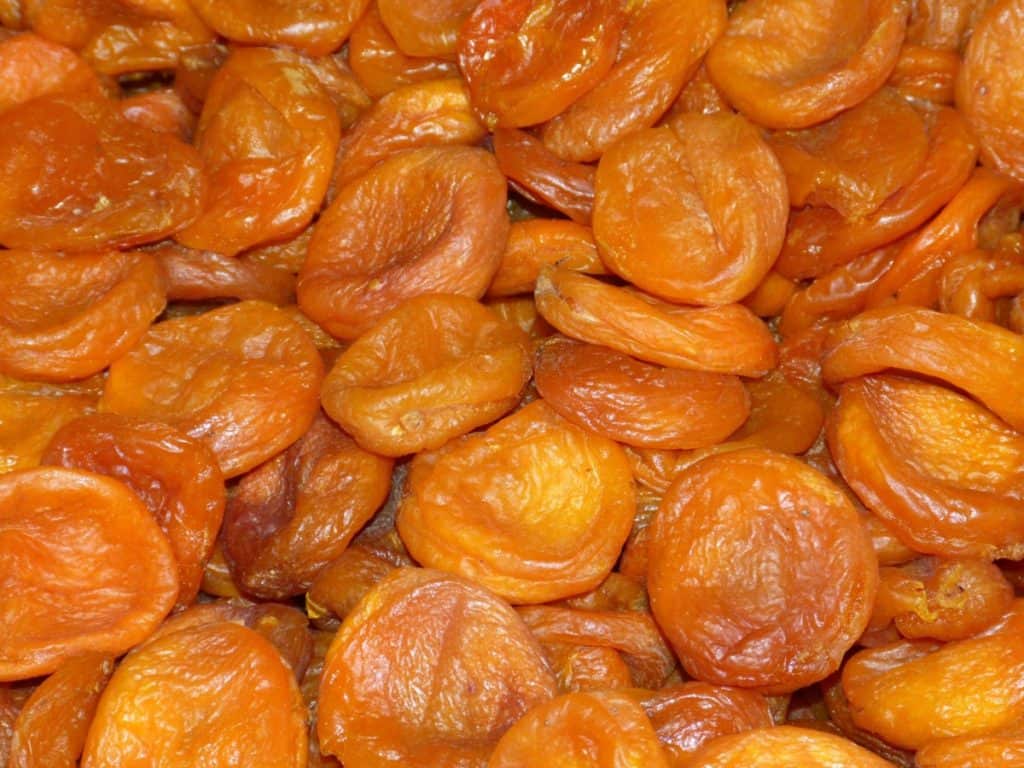
Can chickens eat dried apricots?
Yes, chickens can eat dried apricots. Dried apricots contain larger amounts of sugar compared to fresh apricot slices. In fact, one cup of dried apricots contains 69 grams of sugar.
This is a significant increase compared to 1cup (0.24 l) of fresh apricots that contain 15 grams of sugar.
Fresh apricots are a much healthier treat for chickens compared to the dried fruit variety. When your hens eat too much sugar they gain weight and egg production decreases.
Can Chickens Eat The Skin of Apricots?
Chickens can eat the skin of apricot and it contains many of the same healthy nutrients found in the flesh of the fruit.
Can Chickens Eat Canned or Preserved Apricots?
Yes, chickens can eat canned apricots but apricots in this form may contain preservatives and excess sugar which is not healthy for your flock. Only feed it to them in small amounts.
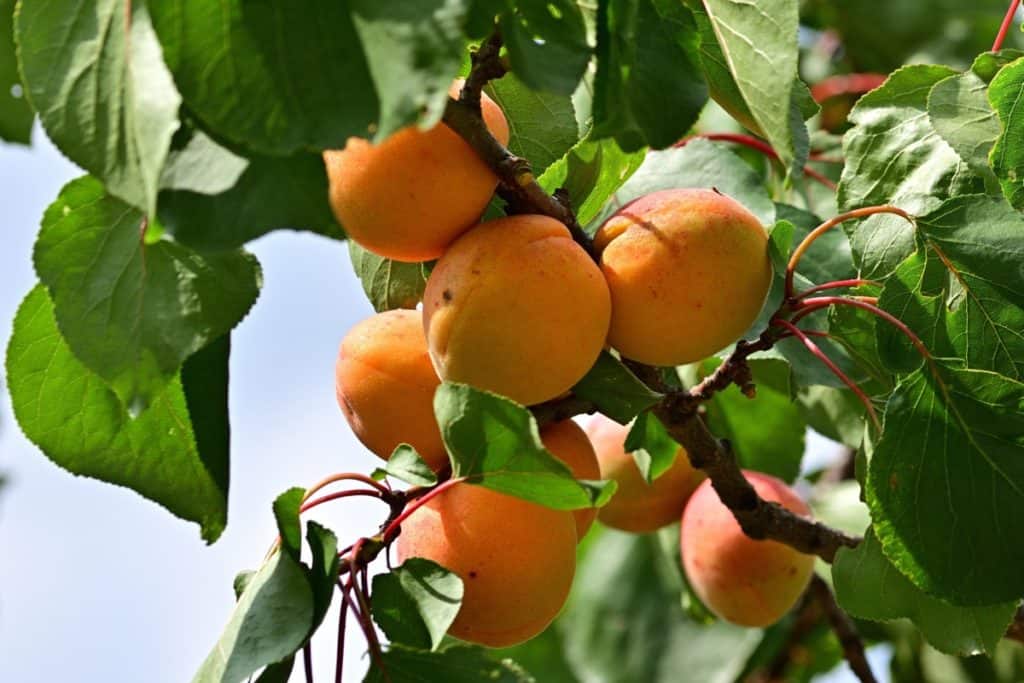
What Part of The Apricot is Poisonous?
The seeds of apricots or pits contain amygdalin which is a cyanogenic glycoside. When ingested the kernel or (pit) can potentially cause fatal cyanide poisoning.
The leaves and stem are also poisonous to your chickens. The leaves and stem contain cyanide which can cause breathing difficulties and other bad problems for chickens and other animals.
Can Chickens Eat Apricot Jam?
As with any sweet or processed food, apricot jam or apricot preserves should only be feed to your chickens in very small amounts.
Can chickens eat fruit scraps?
Yes, chickens can eat fruit kitchen scraps. Make sure any fruit scraps you fed to your birds don’t contain any harmful seeds or leaves. These leaves could be toxic if your backyard chickens ate them.
What are some other fruits chickens can eat?
Chickens can eat many types of fruit such as bananas, plums, eggplants, citrus, and more. Try stringing some up in the run next to their chicken coop for some entertainment.
Final Thoughts
It’s clear that chickens can eat apricots. Chickens love many types of fruits, and we all like to spoil our backyard flocks on occasion. Feed your chickens apricots in moderation. Remember nothing replaces a good layer feed for your egg-laying hens.

